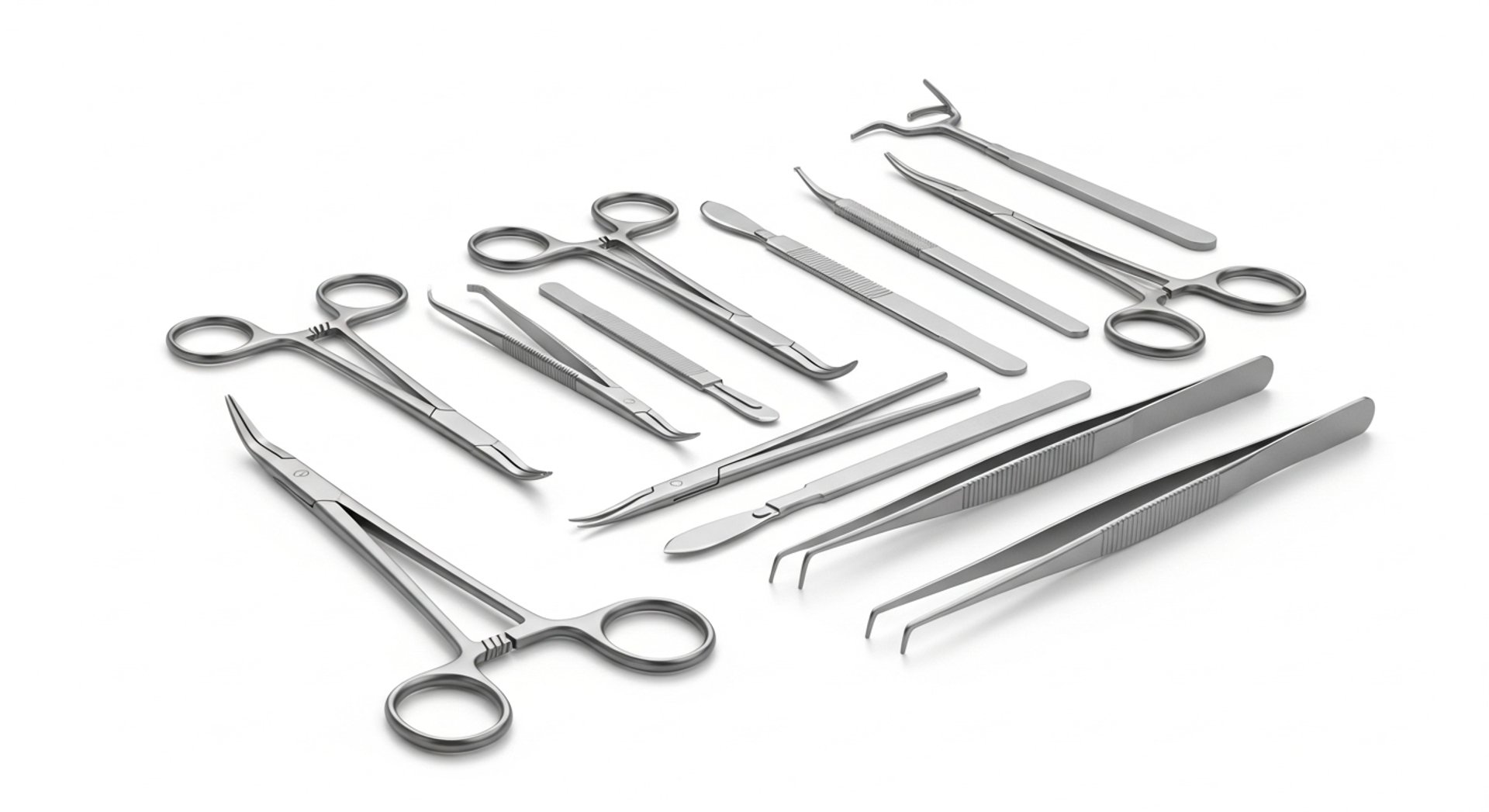
Instruments Care
Zestlet Surgical Instruments | Instruments Care
Procedure for Cleaning, Sterilization, and Maintenance of Surgical Instruments
At Zestlet Surgical, every instrument is manufactured with precision and care to ensure reliable performance and long service life. To maintain these standards, proper handling, cleaning, and sterilization procedures are essential. Following these guidelines will help preserve instrument quality and functionality over time.
General Handling Guidelines
Use each instrument strictly for its intended purpose.
Avoid piling instruments together; weight and entanglement can damage delicate structures.
During surgery and sterilization, handle all instruments with care to prevent wear and tear.
Cleaning Procedures
Initial Cleaning
Instruments should be cleaned immediately after use.
Do not allow blood, tissue, or debris to dry on the surface.
Submerge instruments in a solution of water and neutral pH (7) detergent.
Ultrasonic Cleaning (Recommended)
Process instruments in an ultrasonic cleaner for 5–10 minutes.
Disassemble all removable parts before cleaning.
Avoid mixing stainless steel instruments with other metals during the same cycle.
Replace cleaning solution frequently as per the manufacturer’s recommendations.
Manual Cleaning (If Ultrasonic Is Not Available)
Use a stiff nylon brush; do not use abrasive brushes or steel wool.
Clean with a neutral pH solution and ensure the entire surface is thoroughly cleaned.
Avoid harsh chemicals that may damage the instrument finish.
Lubrication
After cleaning, carefully dry all instruments.
Apply instrument-grade lubricant on hinges, box locks, and moving parts (e.g., scissors, needle holders, hemostats).
Sterilization Methods
Autoclaving (Preferred Method)
After cleaning, drying, and lubrication, instruments are ready for autoclaving.
Individual instruments: Use a pouch wide enough to keep ratchet-lock instruments unlocked during sterilization.
Instrument sets: Arrange in stainless steel trays, placing heavy instruments at the bottom.
Do not overload the autoclave chamber to allow proper steam circulation.
Cold Sterilization
Always clean instruments before sterilization; sterilization does not replace cleaning.
Follow the appropriate chemical sterilant guidelines to achieve the required aseptic condition.
Manufacturer & Exporter of
Dental and Surgical Instruments, Beauty Instruments, Diagnostic Devices, Hollowware and Hospital Furniture
Precision
Email:sales@zestletsurgical.com
Phone: +923294372020
© 2025. All rights reserved.
| Corporate
| Commitment
| Sustainability
| Production
| Contact US
Address: Chowk, opp. ZestletSurgical Factory, Kotli Behram, Sialkot, Punjab 51310
